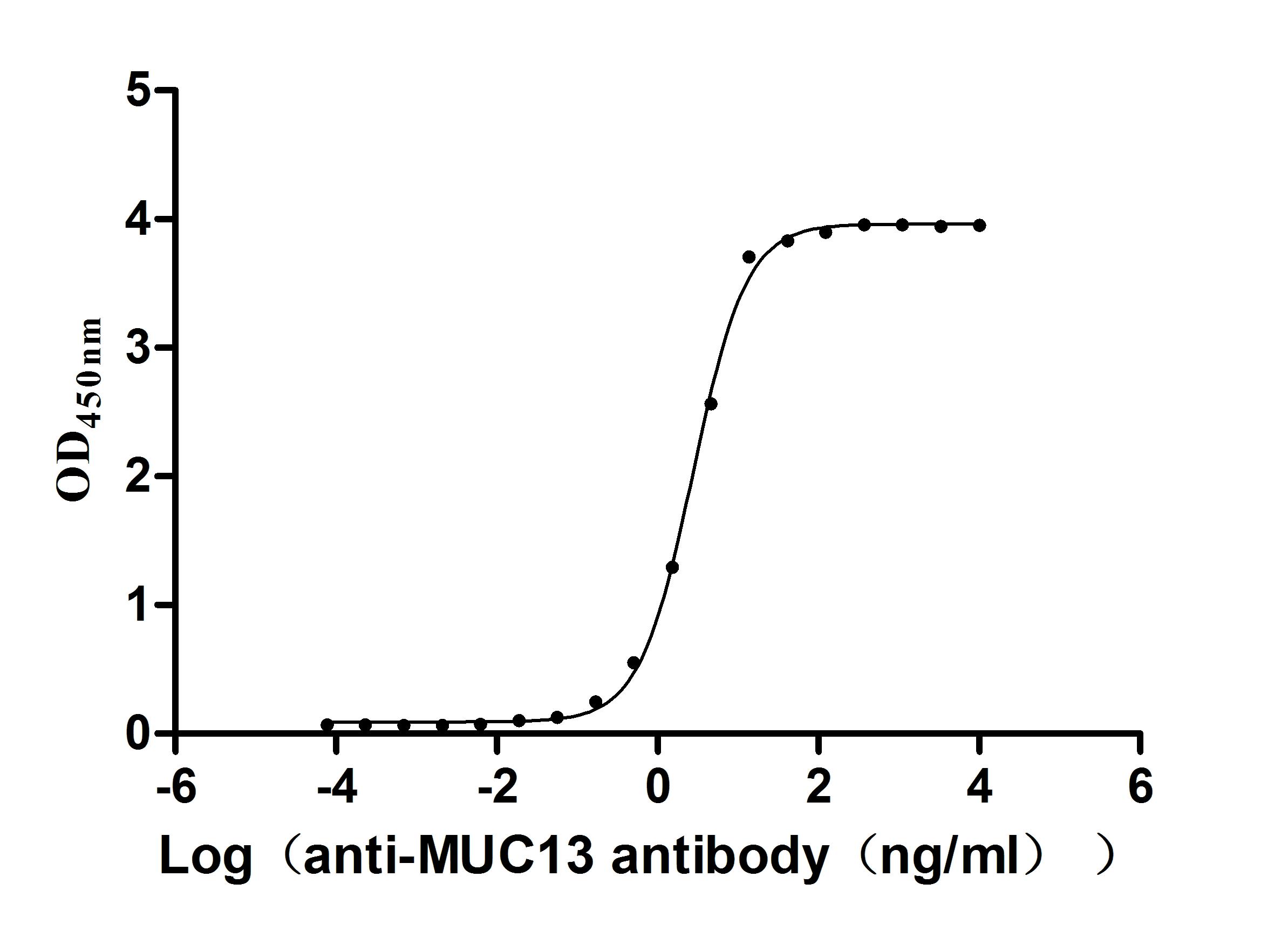Recombinant Human Arylamine N-acetyltransferase 1 (NAT1)
-
货号:CSB-YP015464HU
-
规格:
-
来源:Yeast
-
其他:
-
货号:CSB-EP015464HU
-
规格:
-
来源:E.coli
-
其他:
-
货号:CSB-EP015464HU-B
-
规格:
-
来源:E.coli
-
共轭:Avi-tag Biotinylated
E. coli biotin ligase (BirA) is highly specific in covalently attaching biotin to the 15 amino acid AviTag peptide. This recombinant protein was biotinylated in vivo by AviTag-BirA technology, which method is BriA catalyzes amide linkage between the biotin and the specific lysine of the AviTag.
-
其他:
-
货号:CSB-BP015464HU
-
规格:
-
来源:Baculovirus
-
其他:
-
货号:CSB-MP015464HU
-
规格:
-
来源:Mammalian cell
-
其他:
产品详情
-
纯度:>85% (SDS-PAGE)
-
基因名:NAT1
-
Uniprot No.:
-
别名:AAC1 ; ARY1_HUMAN; Arylamide acetylase 1; Arylamine N acetyltransferase 1; Arylamine N-acetyltransferase 1; mNAT; Monomorphic arylamine N acetyltransferase; Monomorphic arylamine N-acetyltransferase; N acetyltransferase type 1; N-acetyltransferase type 1; NAT 1; NAT-1; nat1; NATI
-
种属:Homo sapiens (Human)
-
蛋白长度:Full length protein
-
表达区域:1-290
-
氨基酸序列MDIEAYLERI GYKKSRNKLD LETLTDILQH QIRAVPFENL NIHCGDAMDL GLEAIFDQVV RRNRGGWCLQ VNHLLYWALT TIGFETTMLG GYVYSTPAKK YSTGMIHLLL QVTIDGRNYI VDAGFGRSYQ MWQPLELISG KDQPQVPCVF RLTEENGFWY LDQIRREQYI PNEEFLHSDL LEDSKYRKIY SFTLKPRTIE DFESMNTYLQ TSPSSVFTSK SFCSLQTPDG VHCLVGFTLT HRRFNYKDNT DLIEFKTLSE EEIEKVLKNI FNISLQRKLV PKHGDRFFTI
-
蛋白标签:Tag type will be determined during the manufacturing process.
The tag type will be determined during production process. If you have specified tag type, please tell us and we will develop the specified tag preferentially. -
产品提供形式:Lyophilized powder
Note: We will preferentially ship the format that we have in stock, however, if you have any special requirement for the format, please remark your requirement when placing the order, we will prepare according to your demand. -
复溶:We recommend that this vial be briefly centrifuged prior to opening to bring the contents to the bottom. Please reconstitute protein in deionized sterile water to a concentration of 0.1-1.0 mg/mL.We recommend to add 5-50% of glycerol (final concentration) and aliquot for long-term storage at -20℃/-80℃. Our default final concentration of glycerol is 50%. Customers could use it as reference.
-
储存条件:Store at -20°C/-80°C upon receipt, aliquoting is necessary for mutiple use. Avoid repeated freeze-thaw cycles.
-
保质期:The shelf life is related to many factors, storage state, buffer ingredients, storage temperature and the stability of the protein itself.
Generally, the shelf life of liquid form is 6 months at -20°C/-80°C. The shelf life of lyophilized form is 12 months at -20°C/-80°C. -
货期:Delivery time may differ from different purchasing way or location, please kindly consult your local distributors for specific delivery time.Note: All of our proteins are default shipped with normal blue ice packs, if you request to ship with dry ice, please communicate with us in advance and extra fees will be charged.
-
注意事项:Repeated freezing and thawing is not recommended. Store working aliquots at 4°C for up to one week.
-
Datasheet :Please contact us to get it.
相关产品
靶点详情
-
功能:Participates in the detoxification of a plethora of hydrazine and arylamine drugs. Catalyzes the N- or O-acetylation of various arylamine and heterocyclic amine substrates and is able to bioactivate several known carcinogens.
-
基因功能参考文献:
- Data showed that NAT1, NAT2, and ESR1 expression were increased in primary breast tumor tissue and that NAT1 expression was much higher than NAT2. NAT1 and ESR1 expression were strongly associated, whereas NAT2 and ESR1 expression were not. Although NAT1 and NAT2 expression were associated, the magnitude was moderate. PMID: 29901116
- the results suggested that there was no association between NAT1*10 allele and bladder cancer risk (meta-analysis). PMID: 28604993
- identified a novel endogenous role for human NAT1 that might explain some of its effects in cancer cell growth and survival PMID: 27865712
- N-acetyltransferase polymorphisms are associated with risk of lymphoma subtypes. PMID: 25689677
- The association of colorectal adenomas with the rs6983267 variant at 8q24 was considered as 'highly credible', the 'less credible' associations were identified with a further four variants of four independent genes: MTHFR c.677C>T p.A222V(rs1801133), TP53 c.215C>G p.R72P (rs1042522), NQO1 c.559C>T p.P187S (rs1800566), and NAT1 alleles imputed as fast acetylator genotypes. [meta-analysis] PMID: 26451011
- The rs1799931(G>A) genotype was detected in the control population but not in the T2DM population. The wild type (G) allele frequency was higher in T2DM than controls. The mutant allele (A) in rs1799931(G>A) had a protective effect for T2DM. PMID: 26409796
- NAT1 genotype affects thioguanine nucleotide levels in patients treated with thiopurines and aminosalicylates and could therefore influence the toxicity and efficacy of these drugs. PMID: 25834322
- NAT1 genetic polymorphisms were found to be a risk factor for smokers in the Black population of South Africa with esophageal squamous cell carcinoma. PMID: 25886288
- NAT1 has a role in the metabolic pathway of nicotine/cotinine and/or their metabolites. PMID: 25156213
- We report that miR-1290 directly targets the NAT1 3'-UTR and that NAT1 protein expression is correlated with improved OS of breast cancer patients. PMID: 25528056
- Arylamine N-acetyltransferase polymorphisms in Han Chinese patients with ankylosing spondylitis and their correlation to the adverse drug reactions to sulfasalazine PMID: 25413361
- Candidate gene NAT1 were elevated in male breast cancer biopsies compared to those from female patients without regard to Estrogen Receptors status. PMID: 24656773
- Data suggest that NAT1/NAT2 participate in biotransformation of many aromatic/heterocyclic amines; molecular models have been developed regarding acetylation mechanism, active site structure, and substrate/inhibitor-binding specificity. [REVIEW] PMID: 23517104
- Epidemiological studies suggest that the NAT1 and NAT2 acetylation polymorphisms modify the risk of developing cancers of the urinary bladder, colorectal, breast, head and neck, and lung PMID: 23420430
- the present study provides evidence for the role of NAT1 and NAT2 variations in NSCLP, and indicates that interactions between the NAT1 and NAT2 genes may be important in susceptibility to NSCLP. PMID: 23660777
- NAT1 rapid acetylation alone as well as combination of NAT1 rapid-NAT2 slow acetylation did not modulate the risk of oral precancer and cancer in an Indian patient population. PMID: 23168701
- Only ADP and ATP are suitable substrates for human AAC1. PMID: 23173940
- Complementation studies revealed that the N-terminal domain of L9 is necessary and sufficient to improve the fitness of some Der mutants, suggesting that this domain may help stabilize compromised ribosomes that accumulate when Der is defective. PMID: 23772068
- This meta-analysis suggests that there was no association between the NAT1*10 allele and bladder cancer risk. PMID: 23569127
- Upregulation of NAT1 is associated with estrogen receptor alpha-positive breast cancer. PMID: 23183268
- Smoking, variation in N-acetyltransferase 1 (NAT1) and 2 (NAT2), and risk of non-Hodgkin lymphoma. PMID: 23160945
- individuals with NAT2 genotype have an elevated risk of colorectal cancer; however, no evidence was found for association between NAT1 and 2 rapid genotype and colorectal adenoma risk PMID: 22905173
- NAT1 is a possible prognostic biomarker for male breast cancer. PMID: 22333393
- meta-analysis wasn't able to detect a significant association between polymorphisms in NAT1 and predisposition to colorectal carcinoma PMID: 22327651
- Data suggest that the 5'-UTRs of arylamine N-acetyltransferase 1 (NAT1) are differentially regulated. PMID: 21837760
- NAT1 14B-catalyzed acetylation phenotype is substrate-dependent; NAT1 14B exhibits higher N- and O-acetylation catalytic efficiency. PMID: 22010219
- the activities of the xenobiotic metabolizing phase II enzyme N-acetyltransferase 1 (NAT1) were higher in the late passages compared to the early passages PMID: 22686306
- NAT1 is transcribed from a major promoter, NATb, and an alternative promoter, NATa, resulting in messenger RNAs (mRNAs) with distinct 5'-untranslated regions (UTRs). PMID: 22114069
- NAT1 affects cell growth and morphology PMID: 21347396
- We observe a signature of balancing selection maintaining variation in the 3'-UTR of NAT1, suggesting that these variants may play a functional role. PMID: 21995608
- NAT1 *10 and *11 significantly increase NAT1 protein level/enzyme activity, enabling the classification of carriers into reference and rapid acetylators PMID: 21878835
- effects of polymorphisms within NAT1 coding region and 3'-UTR and associated haplotypes on catalytic activity and mRNA and protein levels; findings provide support for reported associations of 1088T>A and 1095C>A polymorphisms with birth defects PMID: 21290563
- There is a lack of association of the N-acetyltransferase NAT1*10 allele with prostate cancer incidence, grade, or stage among smokers in Finland. PMID: 20931357
- Only NAT1 showed a significant lower DNA methylation rate in the control group than in the tamoxifen-resistant breast cancer group, and no significant difference in methylation was found in COMT, CYP1A1, CYP2D6, and SULT1A1 genes. PMID: 20628863
- NAT1 and NAT2 gene combinations may influence the risk of developing head and neck cancer. PMID: 19898993
- There was no evidence of an increased risk associated with preference for well-done meat, intake of well-done meat, and NAT1 or NAT2 genotypes (jointly or separately). PMID: 20570911
- HSF1 is an important transcription factor for induction of NAT1 in human cells and is required for androgen activation of the NAT1 promoter. PMID: 20176657
- results suggest that the relationship between non-Hodgkin lymphoma and smoking status may be modified by common genetic variation in NAT1. PMID: 19809881
- the results of this study demonstrate that NAT1 activity may be important in breast cancer growth and metastasis. PMID: 20100460
- Slow metabolic phenotype of NAT1 combined with slow or intermediate NAT2 phenotype increases risk for occupational dermatitis PMID: 19834256
- NAT1 genotype acts as a modifier of diisothionate exposure-associated asthma risk PMID: 11927838
- paclitaxel is an uncompetitive inhibitor to arylamine N-acetyltransferase (NAT) enzyme PMID: 11955676
- paclitaxel affected human leukemia HL-60 cells arylamine N-acetyltransferase (NAT) activity and DNA-2-aminofluorene adduct formation. PMID: 11955677
- NAT1 polymorphisms may be correlated with an increased risk of larynx cancer PMID: 12037388
- susceptibility gene for multifactorial adverse effects and xenobiotic-related diseases (review) PMID: 12052143
- NAT1 polymorphism (NAT1*10) indicates increased susceptibility to prostate cancer PMID: 12355549
- NAT1 * 10 has increased risk of sporadic colorectal adenocarcinoma and significantly related to the later stage tumors, is not significantly related to the tumor location PMID: 12485520
- Single nucleotide polymorphisms of NAT1 and NAT2, and acetylation haplotype were not associated with increased risk for Parkinson disease PMID: 12682333
- It is unlikely that the NAT1*10 or NAT2 rapid/intermediate genotypes are related to stomach cancer risk. PMID: 12692115
- Oxidative stress and cellular redox status may regulate NAT1 activity and have important consequences with regard to drug biotransformation and cancer risk. PMID: 12832400
显示更多
收起更多
-
亚细胞定位:Cytoplasm.
-
蛋白家族:Arylamine N-acetyltransferase family
-
数据库链接:
HGNC: 7645
OMIM: 108345
KEGG: hsa:9
STRING: 9606.ENSP00000443194
UniGene: Hs.2
Most popular with customers
-
Recombinant Human Receptor tyrosine-protein kinase erbB-3 (ERBB3), partial (Active)
Express system: Mammalian cell
Species: Homo sapiens (Human)
-
Recombinant Human Tumor necrosis factor ligand superfamily member 9 (TNFSF9), partial (Active)
Express system: Mammalian cell
Species: Homo sapiens (Human)
-
Recombinant Human Claudin-3 (CLDN3)-VLPs (Active)
Express system: Mammalian cell
Species: Homo sapiens (Human)
-
Recombinant Human CD81 antigen (CD81), partial (Active)
Express system: Mammalian cell
Species: Homo sapiens (Human)
-
Recombinant Human Serotransferrin(TF) (Active)
Express system: Mammalian cell
Species: Homo sapiens (Human)
-
Recombinant Human Cadherin-1(CDH1),partial (Active)
Express system: Mammalian cell
Species: Homo sapiens (Human)
-
Recombinant Human Tumor necrosis factor ligand superfamily member 15(TNFSF15) (Active)
Express system: Mammalian cell
Species: Homo sapiens (Human)
-
Recombinant Human Mucin-13(MUC13),partial (Active)
Express system: yeast
Species: Homo sapiens (Human)


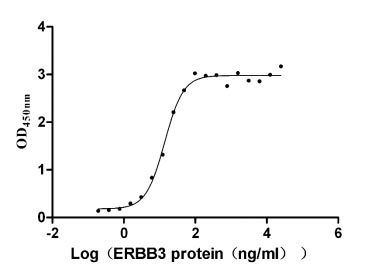
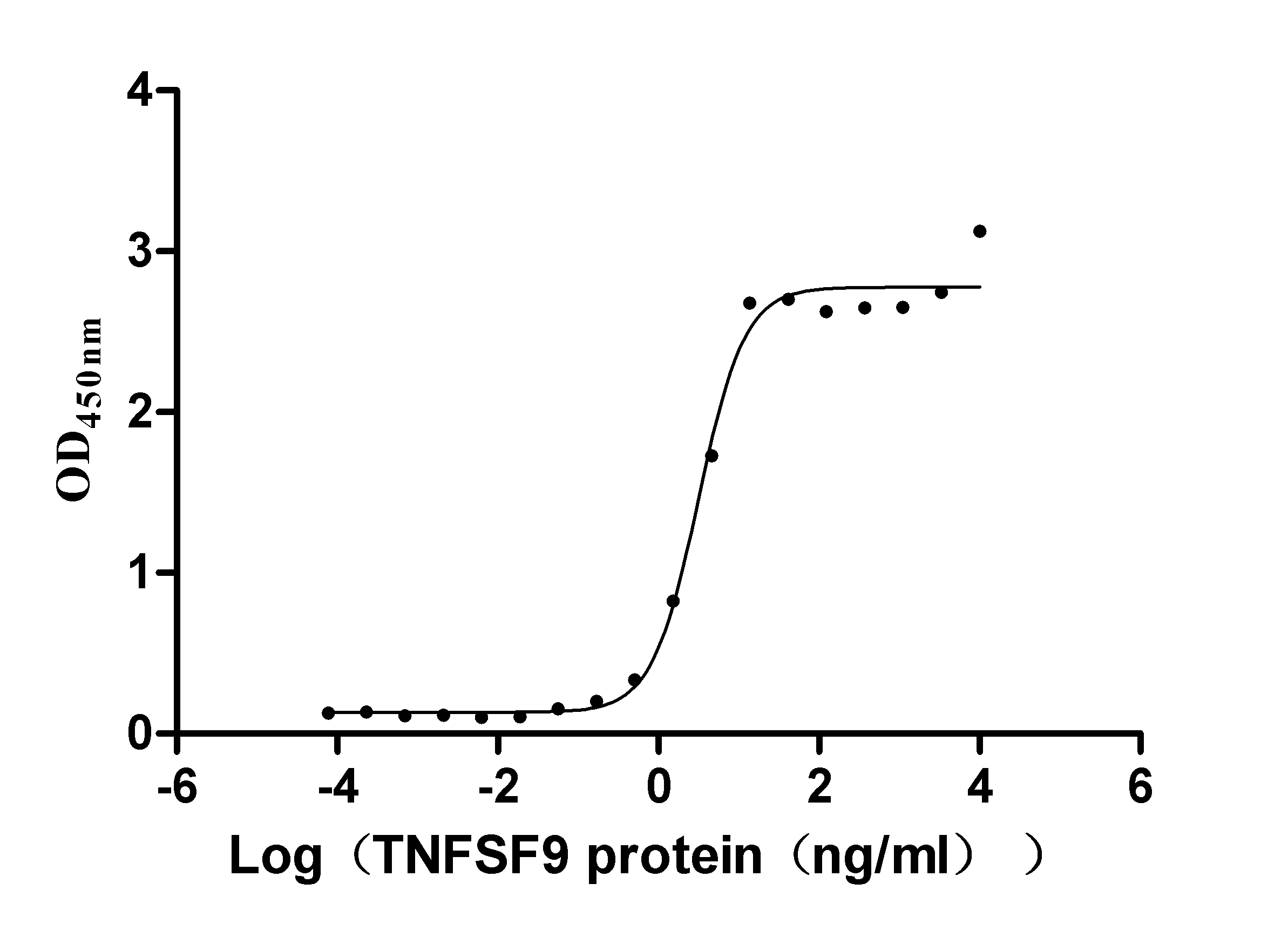
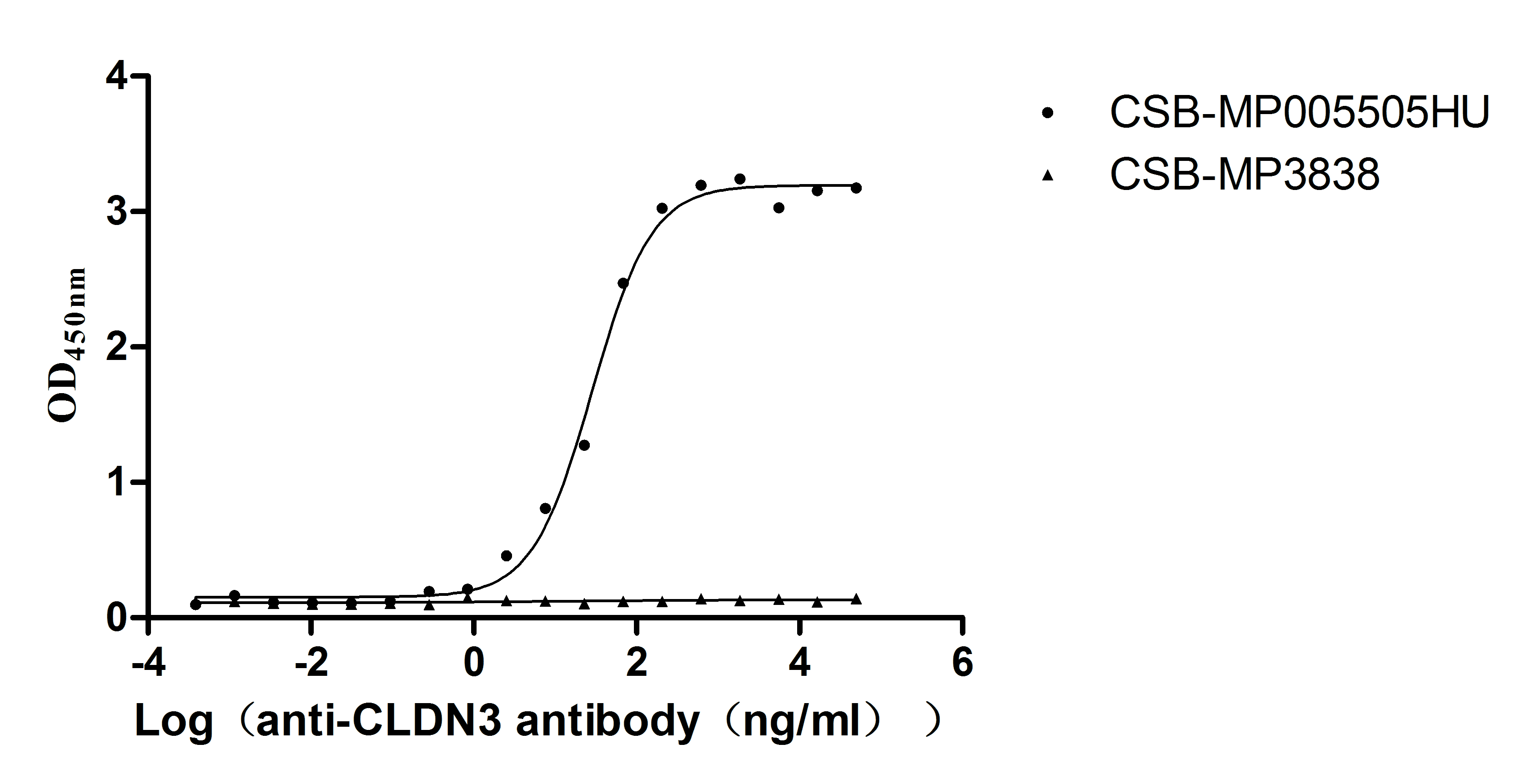
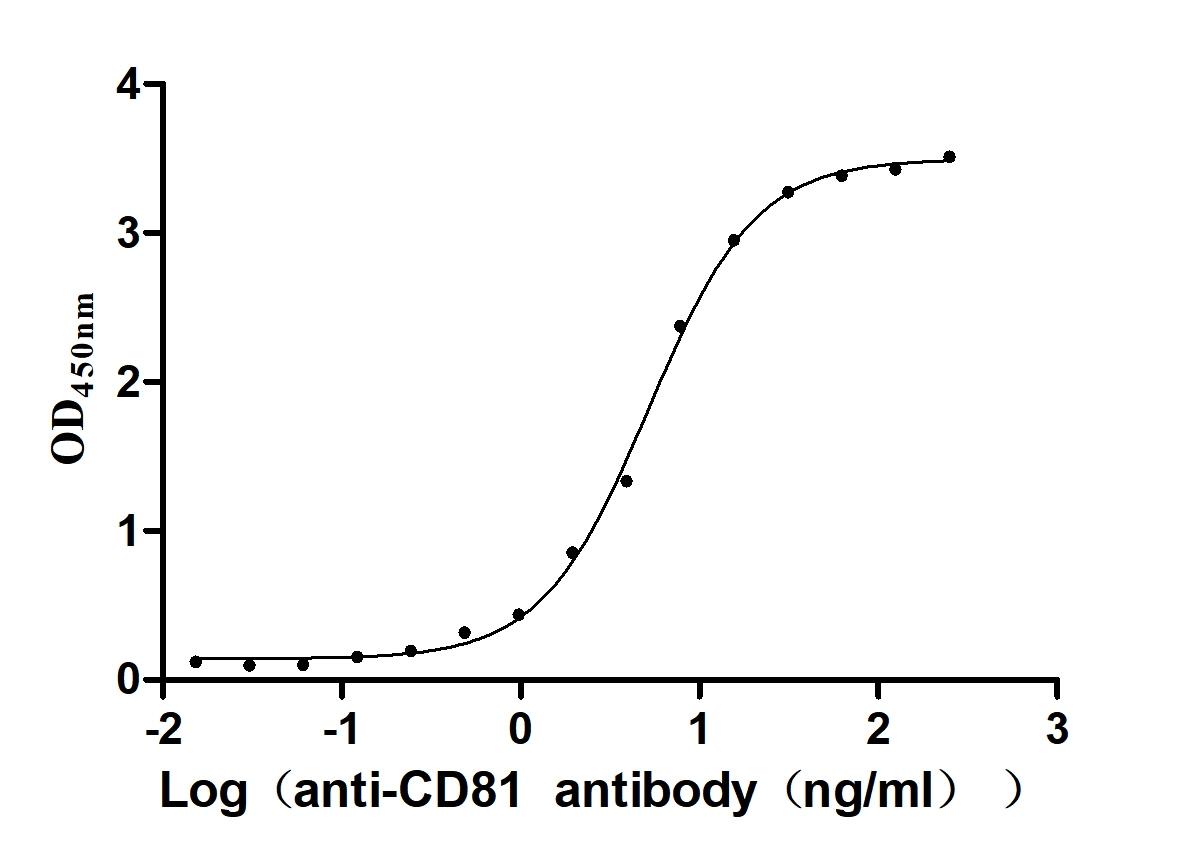
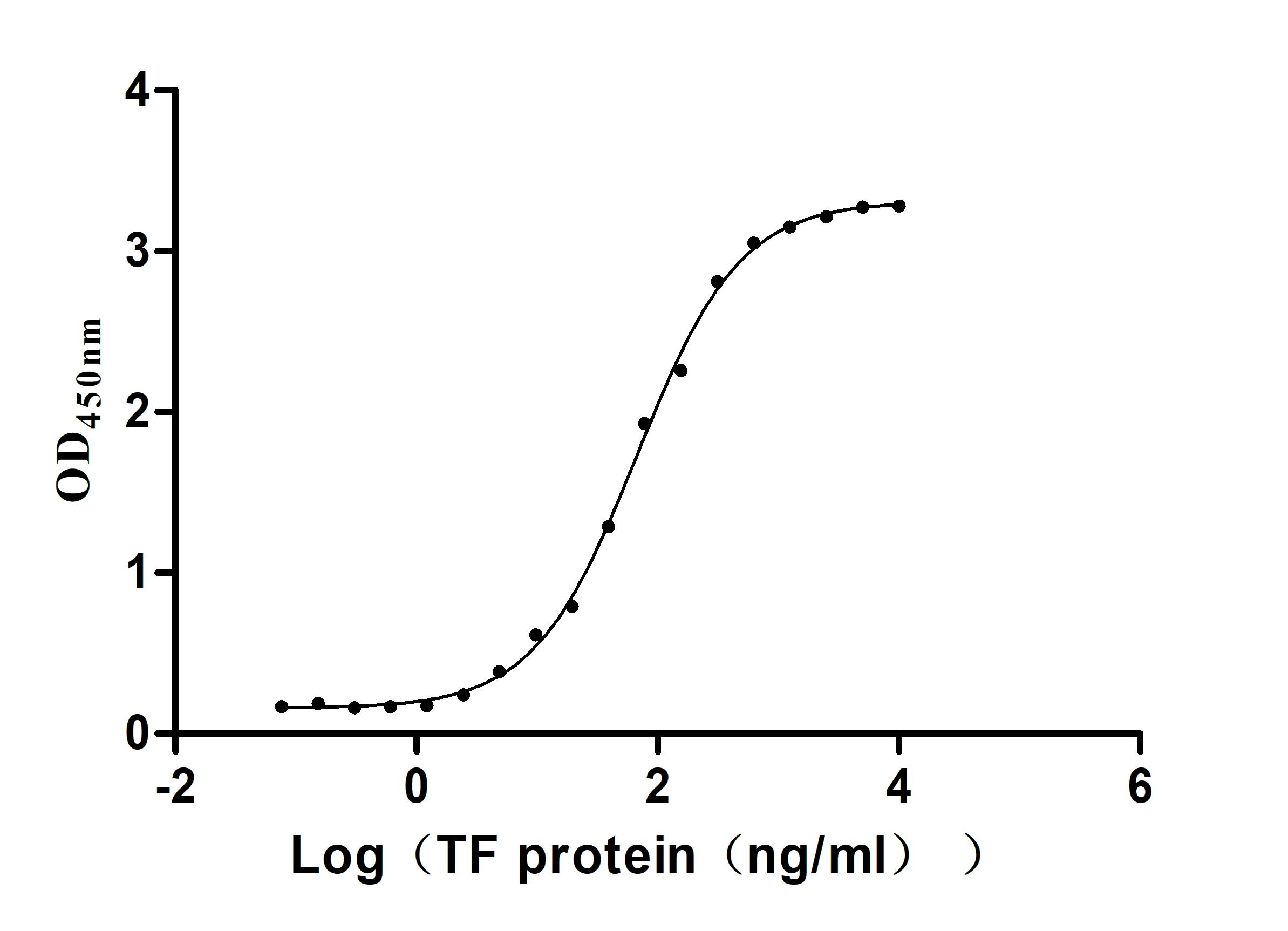
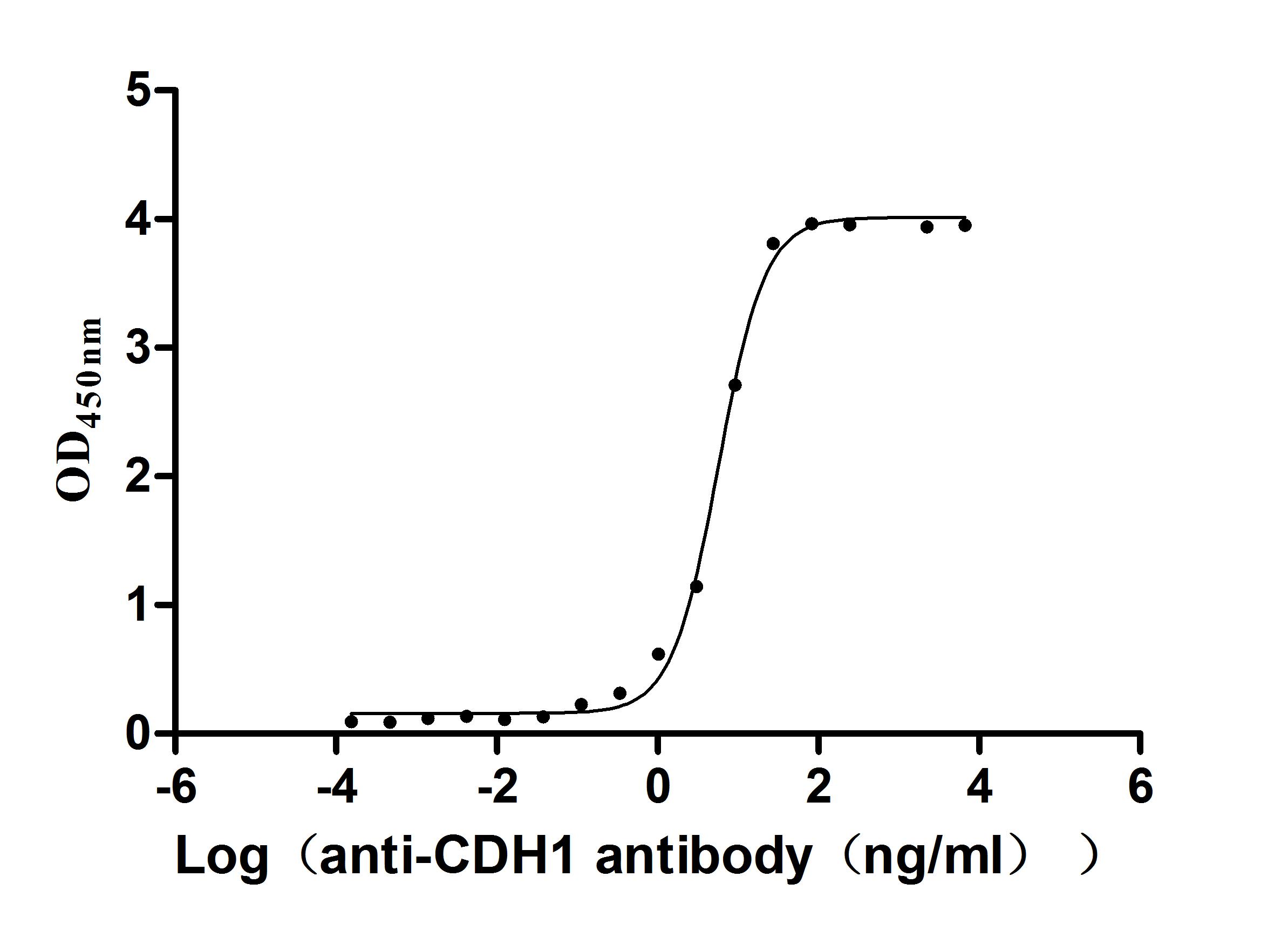
-AC1.jpg)
